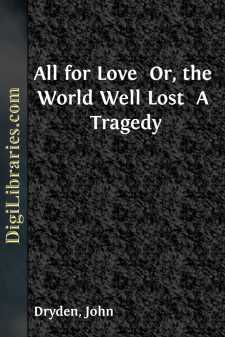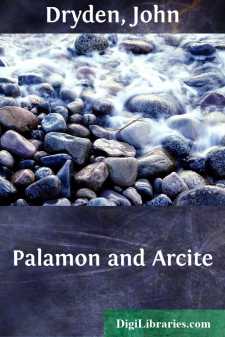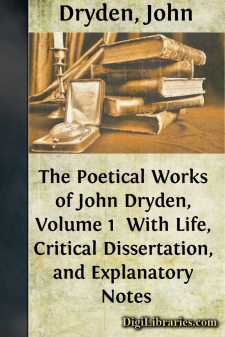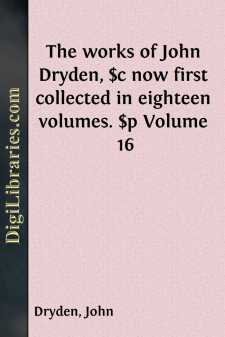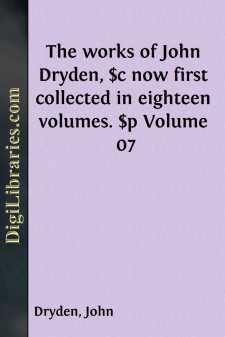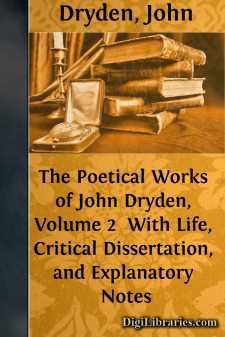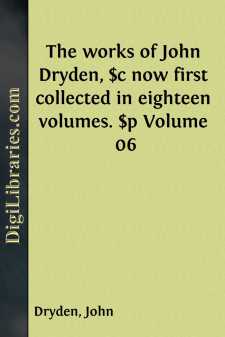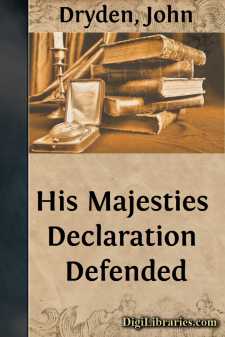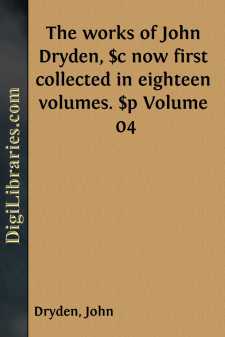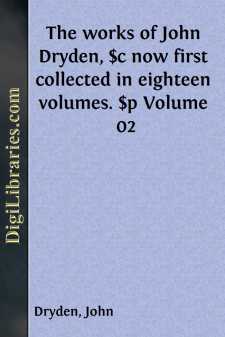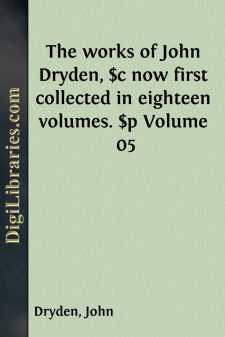Categories
- Antiques & Collectibles 13
- Architecture 36
- Art 48
- Bibles 22
- Biography & Autobiography 813
- Body, Mind & Spirit 142
- Business & Economics 28
- Children's Books 15
- Children's Fiction 12
- Computers 4
- Cooking 94
- Crafts & Hobbies 4
- Drama 346
- Education 46
- Family & Relationships 57
- Fiction 11829
- Games 19
- Gardening 17
- Health & Fitness 34
- History 1377
- House & Home 1
- Humor 147
- Juvenile Fiction 1873
- Juvenile Nonfiction 202
- Language Arts & Disciplines 88
- Law 16
- Literary Collections 686
- Literary Criticism 179
- Mathematics 13
- Medical 41
- Music 40
- Nature 179
- Non-Classifiable 1768
- Performing Arts 7
- Periodicals 1453
- Philosophy 64
- Photography 2
- Poetry 896
- Political Science 203
- Psychology 42
- Reference 154
- Religion 513
- Science 126
- Self-Help 84
- Social Science 81
- Sports & Recreation 34
- Study Aids 3
- Technology & Engineering 59
- Transportation 23
- Travel 463
- True Crime 29
All for Love Or, the World Well Lost A Tragedy
by: John Dryden
Categories:
Description:
Excerpt
INTRODUCTORY NOTE
The age of Elizabeth, memorable for so many reasons in the history of England, was especially brilliant in literature, and, within literature, in the drama. With some falling off in spontaneity, the impulse to great dramatic production lasted till the Long Parliament closed the theaters in 1642; and when they were reopened at the Restoration, in 1660, the stage only too faithfully reflected the debased moral tone of the court society of Charles II.
John Dryden (1631-1700), the great representative figure in the literature of the latter part of the seventeenth century, exemplifies in his work most of the main tendencies of the time. He came into notice with a poem on the death of Cromwell in 1658, and two years later was composing couplets expressing his loyalty to the returned king. He married Lady Elizabeth Howard, the daughter of a royalist house, and for practically all the rest of his life remained an adherent of the Tory Party. In 1663 he began writing for the stage, and during the next thirty years he attempted nearly all the current forms of drama. His "Annus Mirabilis" (1666), celebrating the English naval victories over the Dutch, brought him in 1670 the Poet Laureateship. He had, meantime, begun the writing of those admirable critical essays, represented in the present series by his Preface to the "Fables" and his Dedication to the translation of Virgil. In these he shows himself not only a critic of sound and penetrating judgment, but the first master of modern English prose style.
With "Absalom and Achitophel," a satire on the Whig leader, Shaftesbury, Dryden entered a new phase, and achieved what is regarded as "the finest of all political satires." This was followed by "The Medal," again directed against the Whigs, and this by "Mac Flecknoe," a fierce attack on his enemy and rival Shadwell. The Government rewarded his services by a lucrative appointment.
After triumphing in the three fields of drama, criticism, and satire, Dryden appears next as a religious poet in his "Religio Laici," an exposition of the doctrines of the Church of England from a layman's point of view. In the same year that the Catholic James II. ascended the throne, Dryden joined the Roman Church, and two years later defended his new religion in "The Hind and the Panther," an allegorical debate between two animals standing respectively for Catholicism and Anglicanism.
The Revolution of 1688 put an end to Dryden's prosperity; and after a short return to dramatic composition, he turned to translation as a means of supporting himself. He had already done something in this line; and after a series of translations from Juvenal, Persius, and Ovid, he undertook, at the age of sixty-three, the enormous task of turning the entire works of Virgil into English verse. How he succeeded in this, readers of the "Aeneid" in a companion volume of these classics can judge for themselves. Dryden's production closes with the collection of narrative poems called "Fables," published in 1700, in which year he died and was buried in the Poet's Corner in Westminster Abbey....


